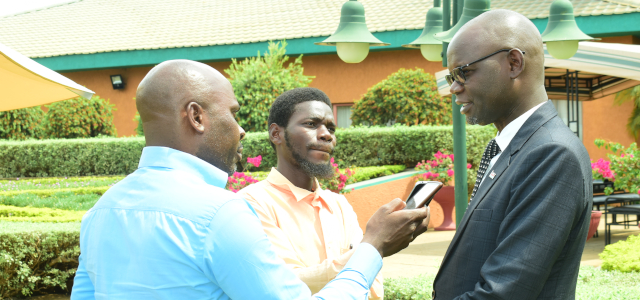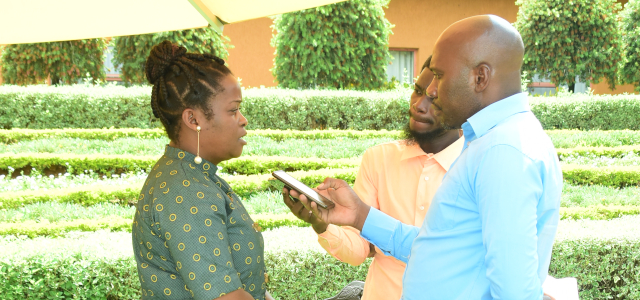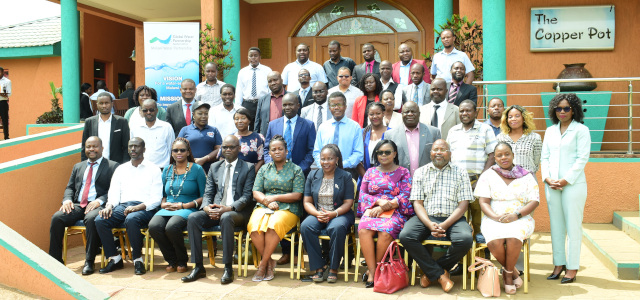The Ministry of Water and Sanitation in Malawi is championing a process to understand and find solutions to the country's three major barriers to the achievement of Sustainable Development Goal 6 so that the country can focus on interventions that directly address the challenges.
The three barriers, which include flawed coordination and regulatory framework, inadequate water investments and climate financing, and advocacy for strengthened leadership in the water sector, were identified through a multi-layered consultative process under the Global Water Leadership Program which is being implemented in Malawi by the Global Water Partnership and UNICEF.
From November 23 to 24, the Ministry convened three task forces that are each working on one of the barriers with the aim of kickstarting the process of in-depth analysis of the root causes of the barriers and proposal of solutions.
Officially opening the taskforce workshop on Wednesday, November 23, in Lilongwe, Principal Secretary in the Ministry of Water and Sanitation Mr. Elias Chimlambe urged stakeholders not to be comfortable with the strides the country has made on access to water and sanitation, stating that disasters have the potential of reversing those gains.

Journalists interview PS Chimlambe on his efforts to meet SDG 6 targets
A 2022 assessment done by the National Planning Commission shows that Malawi is on track to meet the 2030 targets related to water and sanitation with 87.9 percent of the population having access to improved sources of drinking water.
"The SDG progress report however warns that tropical cyclones Ana and Gombe earlier this year have the potential to reverse the gains made on some SDGs including Goal 6 on water and sanitation. It has already been established that water-related climate shock impacts heavily on the WASH sector. For instance, the World Bank estimates that Cyclone Idai in 2019 destroyed WASH infrastructure worth US$3.8 million. It is therefore important that we take this process seriously and ensure that as a country we develop strategies that are inclusive and climate resilient," explained Mr. Chimlambe.
The task forces have until October 2023 to develop strategies to address the three barriers. The strategies will then be a guide for the intervention that the Malawi government and stakeholders in the water and sanitation sector will be implementing.
Global Water Leadership Malawi Coordinator, Deborah Muheka expressed satisfaction at the depth of the discussions by the three taskforces, stating that it is a good start to the year long process of identifying practical strategies that would address the challenges the sector is facing.
"This process speaks to recommendations that the 2022 State of the World's Drinking Water report by WHO, UNICEF and the World Bank that advises governments to make reforms around coordination and regulation; and improve on funding and financing of water and sanitation projects. Through the GWL Programme, we will support government carry out holistic and thorough process that would help the country understand the main causes of the challenges, identify gaps and solutions so that the country meets SGD targets on water and sanitation," explained Mrs. Muheka.
 Journalists interview GWL Malawi Coordinator Deborah Muheka on GWP's support to Malawi's Ministry of Water and Sanitation
Journalists interview GWL Malawi Coordinator Deborah Muheka on GWP's support to Malawi's Ministry of Water and Sanitation
Composition of the task forces is varied with members coming from civil society, government agencies, parastatals, and the private sector, among others.
The GWL Program aims to get poor and vulnerable people in low- and middle-income countries to use resilient, safely managed WASH services resulting in improved resilience, health, and well-being for poor and vulnerable people. Apart from Malawi, the program is also being implemented in 9 other countries including Tanzania, Madagascar, Rwanda, Uganda, Central African Republic, Chad, Bangladesh, Nepal, and the State of Palestine.
